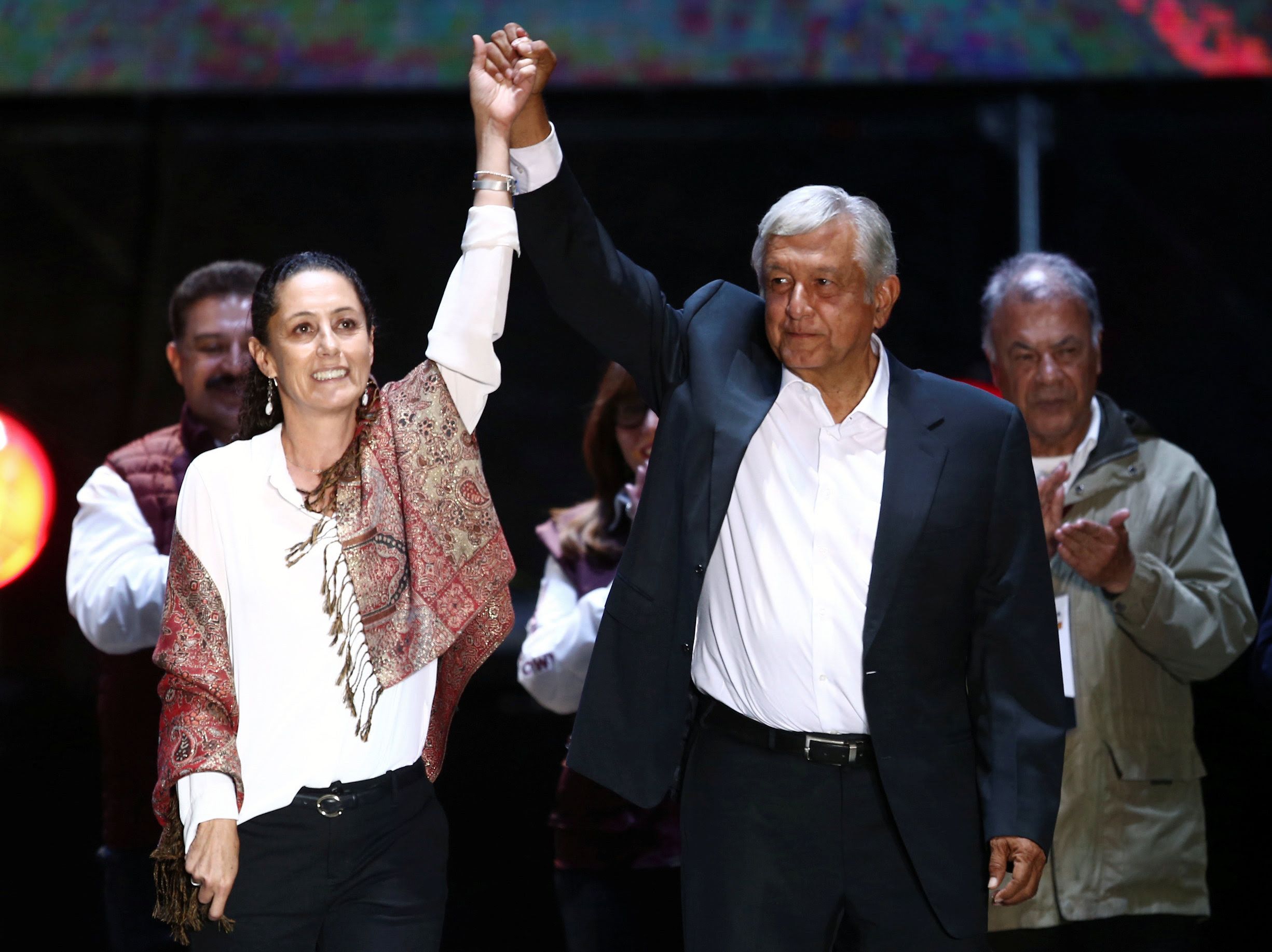The underreported story of Mexico’s July 1 elections is a huge political victory for the country’s women. A look at the facts:
- In the next congress, women will make up 47.8 percent of the lower house, 49.2 percent of the senate, and at least 50 percent of most state legislatures.
- The former job of newly elected President Andrés Manuel López Obrador—Mexico City mayor—will be held by a woman (Claudia Sheinbaum, pictured above).
- Mexico’s lower house will have the world’s fourth-largest female legislative representation.
- Mexico’s Senate will have the world’s second-largest female representation after Belgium.
This breakthrough has been a long time coming. For 15 years, Mexico has had mandatory quotas that require each political party to include a set percentage of women among its candidates for office. The required percentage has increased over time, but Mexican women have long complained that female candidates lacked critical support from their parties. Pressure for change has now produced a positive result.
But that’s not true in Brazil, where female participation in politics remains a source of national embarrassment. That might surprise you, given that Brazil’s most recent president was a woman. (Dilma Rousseff was impeached as part of the still-growing Lava Jato corruption scandal.) A look at the facts:
- Women make up a little over 10 percent of the lower house and just under 15 percent of the Senate.
- Just one of 29 members of President Michel Temer’s cabinet is a woman.
- Of 16,131 candidates who won zero votes in Brazil’s 2016 municipal elections, 14,417 were women.
- The country ranks 154th in world in female representation in the national legislature.
It’s not enough for a political party to put a woman’s name on the ballot. She must have the same financial and political backing from the party that male candidates receive. She must be allowed to compete in a district her party can win. At a minimum, she must be informed in advance that she’s a candidate. There have been multiple cases where Brazilian women have discovered their names on a ballot without having agreed to run.
The bottom line: No one knows how female lawmakers will change politics and policy, but only in countries where political parties genuinely want women to participate are we likely to find out.
